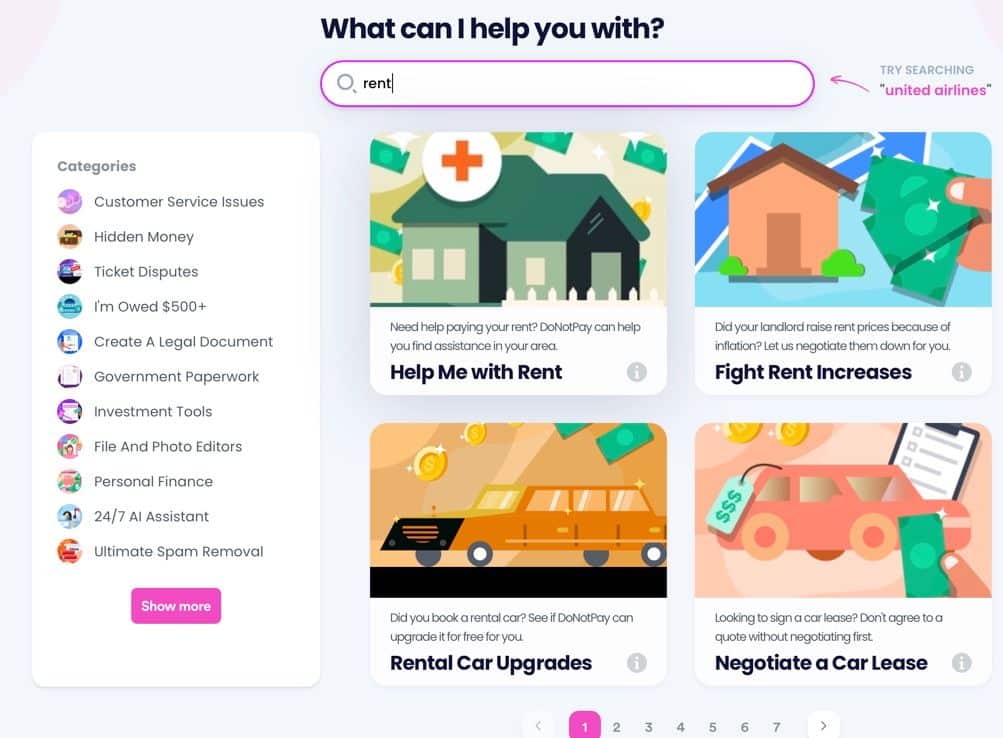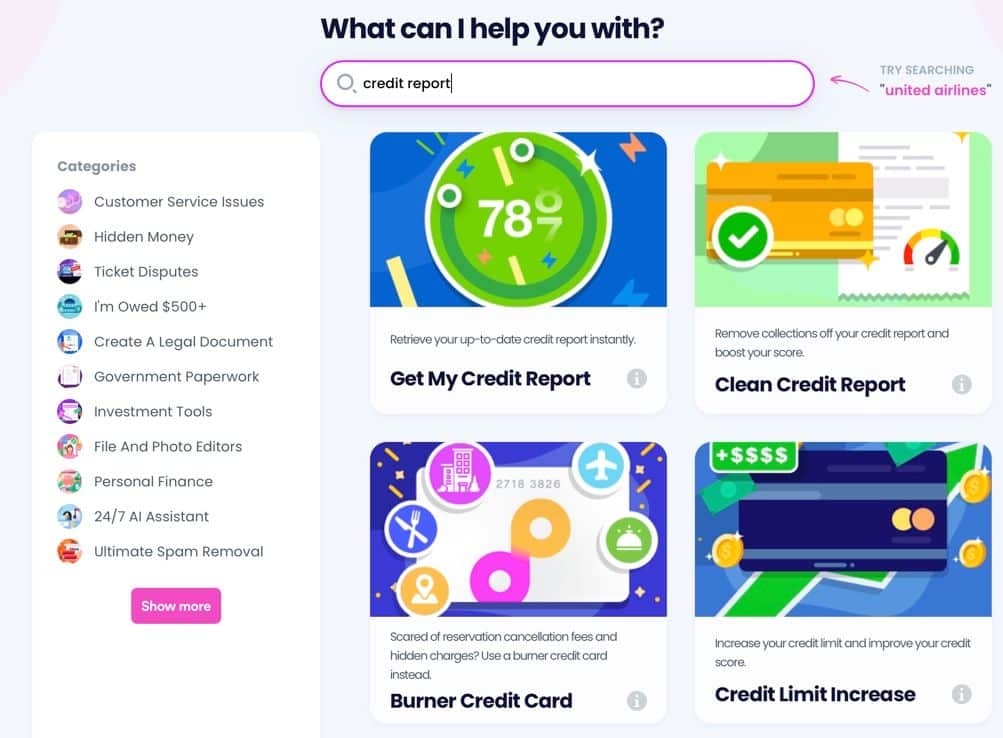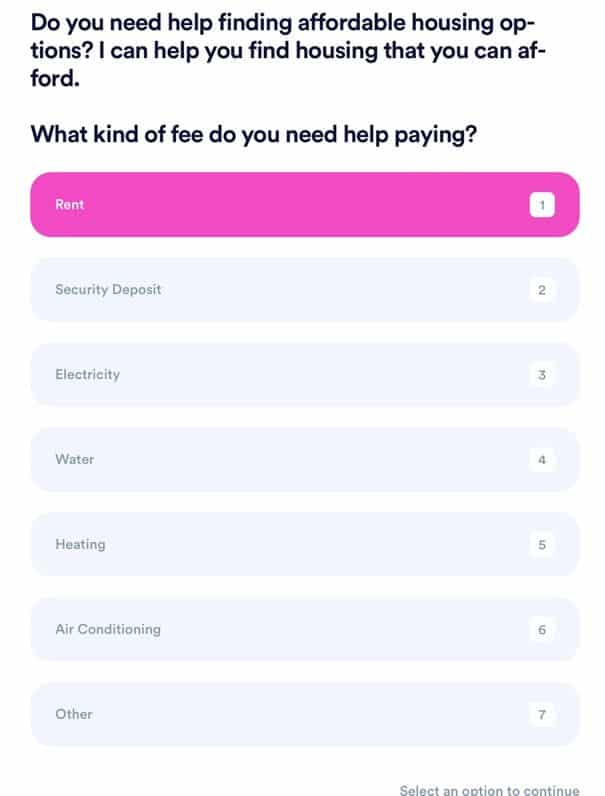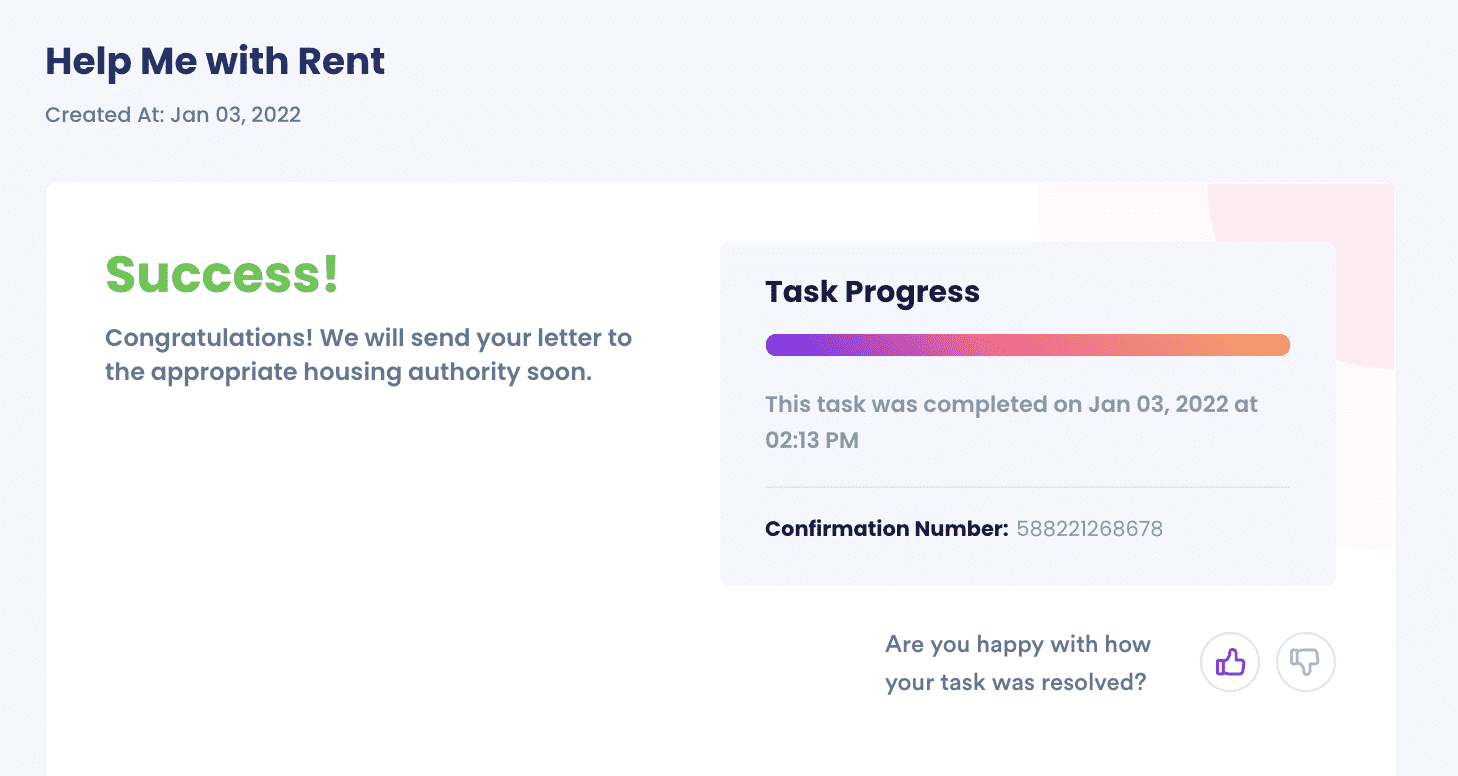How to Apply For Rental Assistance In SC
First, it is worth mentioning that the SC Stay Plus program refers to a rental and utility assistance program funded by the U.S. Department of Treasury. The program was launched in May 2021 to help those experiencing housing challenges and financial hardships due to the COVID-19 global health crisis.
As a result, households affected by this problem can get back on track, thanks to the program, which provides the following:
- Housing costs like security deposits, moving expenses, hotel/motel stays, and storage costs for those displaced by the pandemic
- Up to 12 months of utility and rental assistance dating back to March 13, 2020
- A maximum of three months of future rent to stabilize those facing housing insecurity
Additionally, there are various requirements you need to meet when applying for SC rental assistance, and DoNotPay can guide you through the process.
Requirements When Applying for the SC Rental Assistance
One can access the if they meet the criteria below:
- Their household income is either at or below 80% of the county's median income.
- They have experienced a financial hardship directly or indirectly due to COVID-19, have qualified for unemployment, or have suffered a reduction in household income.
- They can demonstrate a risk of experiencing housing instability or homelessness.
SC Rental Assistance Resources to Help You Stay in Your Home
It is quite unfortunate that the federal eviction moratorium has ended. That suggests several households across SC are on the verge of eviction since many families and individuals are falling behind on their rent, risking court action.
The federal government's eviction moratorium aimed at protecting individuals against losing their homes due to rent non-payment ended on August 27, 2021. That was after a decision by the U.S. Supreme Court.
For that reason, state officials have come up with several SC rental assistance resources to help those in need, and below are the details:
| State/Federal Rental Assistance | The state entities working together to help renters and homeowners during the pandemic, in this case, include;
|
| SC Stay Plus Rental and Utility Assistance Program | As mentioned earlier, the SC Stay Plus program is a rental and utility assistance program funded by the U.S. Department of Treasury. Once approved for the program, SC households can access up to 12 months of rental and utility assistance dating back to March 13, 2020.
Also, one can get up to three months of future rent to stabilize their housing insecurity and cover other housing expenses. Note that residents in 39 counties can participate in the SC Stay Plus program. However, seven counties received different funding and provided other rental assistance programs. These counties include Horry, Anderson, Richland, Berkeley, Greenville, and Charleston. |
| Eastern Carolina Housing Organization (ECHO) | SC residents living in 13 counties are eligible for ECHO, which offers help through;
Understand that the Emergency Rental Assistance Program (ERAP) was created to help renters with financial challenges relating to the pandemic. The program offers utility and rental assistance to eligible households. That, in turn, allows the latter to maintain housing stability and avoid eviction. |
The programs above are the SC rental assistance options you can consider when you need help.
Insight Into Applying for Housing Assistance in South Carolina Using DoNotPay
The steps below offer guidance on creating a letter to your local housing authority, depending on your situation, and inquire about your best options for receiving assistance using DoNotPay.
- Search for Rental Assistance on DoNotPay.

- Put together a list of your income, debts, expenses, and assets. If you need help accessing information like your credit report, DoNotPay can help you get your report.

- Let DoNotPay collect your basic information and compose a letter to your local housing authority requesting rental assistance.

- Lastly, DoNotPay will send your letter to your local housing authority.

Reasons for Using DoNotPay to Apply for Housing Assistance
- Easy – Keeping track of every step involved in applying for housing assistance and filling out tedious forms will be something of the past when you opt to use DoNotPay.
- Successful – All the assistance you need when using DoNotPay is accessible, which promotes success.
- Fast – You can save much time using DoNotPay.
What Else Can You Expect From DoNotPay?
Aside from SC rental assistance, we can also assist you with the following inquiries:
- Rental Housing Assistance Program
- Rental Assistance
- ERAP
- Government Assistance for Rent
- Paying Rent Today
- Resources for Rental Assistance
- Get Help With Rent
- How Long Does It Take to Get Rental Assistance?
- HUD Rental Assistance
- Paying Rent to Avoid Eviction
Helping you with rental assistance is only a drop in the bucket of our services. These are just a few examples of how we can advocate for you:
- Facilitates the process of finding unclaimed money
- It reduces property taxes
- Provides access to free trials, and you will not incur charges
- It allows you to send demand letters to anyone
- Helps you to discover and apply for scholarships
- Allows you to schedule appointments with the DMV
- It offers assistance when filing a complaint against any organization
- Helps with bills
SC rental assistance allows you to access the much-needed relief you need during difficult situations even as things pick up steadily. On the other hand, you should consider signing up with DoNotPay today to access the help you need when applying for housing assistance.
 By
By